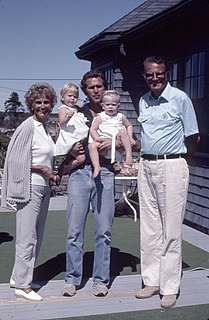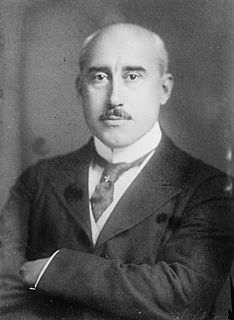A Quote by Henry Wadsworth Longfellow
Under the spreading chestnut tree The village smithy stands; The smith, a mighty man is he, With large and sinewy hands; And the muscles of his brawny arms Are strong as iron bands. . . . He earns whate'er he can, And looks the whole world in the face, For he owes not any man. . . . Toiling,-rejoicing,-sorrowing, Onward through life he goes; Each morning sees some task begin, Each evening sees it close; Something attempted, something done, Has earned a night's repose.
Related Quotes
Dear God, I prayed, all unafraid (as we're inclined to do), I do not need a handsome man but let him be like You; I do not need one big and strong nor yet so very tall, nor need he be some genius, or wealthy, Lord, at all; but let his head be high, dear God, and let his eye be clear, his shoulders straight, whate'er his state, whate'er his earthly sphere; and let his face have character, a ruggedness if soul, and let his whole life show, dear God, a singleness of goal; then when he comes (as he will come) with quiet eyes aglow, I'll understand that he's the man I prayed for long ago.
It is a kiss that, once begun, never really ends. Interrupted, yes. Paused, certainly. But from that very moment onward, Vera sees the whole of her life as only a breath away from kissing him again. On that night in the park, they begin the delicate task of binding their souls together, creating a whole comprising their separate halves.
If Montaigne is a man in the prime of life sitting in his study on a warm morning and putting down the sum of his experience in his rich, sinewy prose, then Pascal is that same man lying awake in the small hours of the night when death seems very close and every thought is heightened by the apprehension that it may be his last.
Living as a couple never means that each gets half. You must take turns at giving more than getting. It’s not the same as a bow to the other whether to dine out rather than in, or which one gets massaged that evening with oil of calendula; there are seasons in the life of a couple that function, I think, a little like a night watch. One stands guard, often for a long time, providing the serenity in which the other can work at something. Usually that something is sinewy and full of spines. One goes inside the dark place while the other one stays outside, holding up the moon.
The basic project of art is always to make the world whole and comprehensible, to restore it to us in all its glory and its occasional nastiness, not through argument but through feeling, and then to close the gap between you and everything that is not you, and in this way pass from feeling to meaning. It's not something that committees can do. It's not a task achieved by groups or by movements. It's done by individuals, each person mediating in some way between a sense of history and an experience of the world.
Yet each man kills the thing he loves, By each let this be heard, Some do it with a bitter look, Some with a flattering word, The coward does it with a kiss, The brave man with a sword! Some kill their love when they are young, And some when they are old; Some strangle with the hands of Lust, Some with the hands of Gold: The kindest use a knife, because The dead so soon grow cold. Some love too little, some too long, Some sell, and others buy; Some do the deed with many tears, And some without a sigh: For each man kills the thing he loves, Yet each man does not die.

































